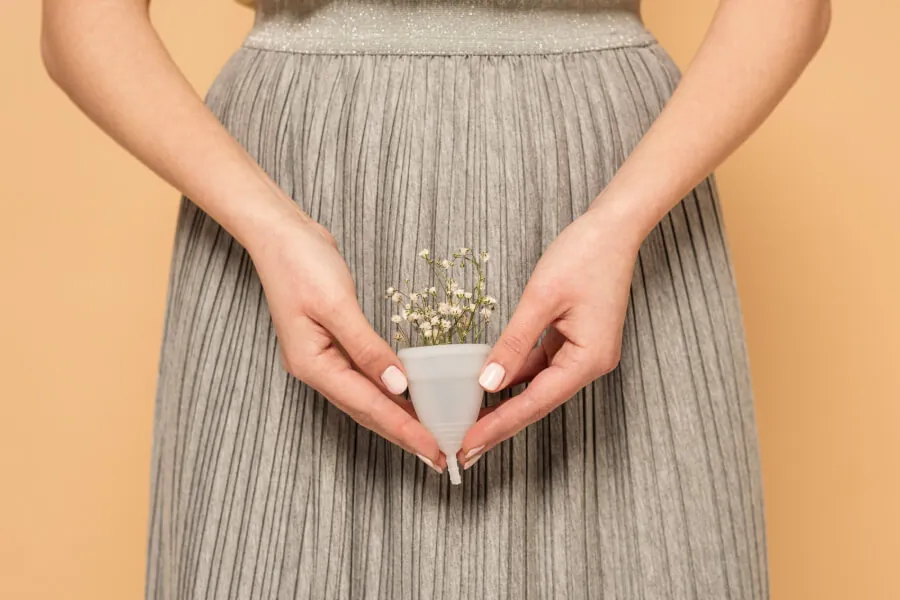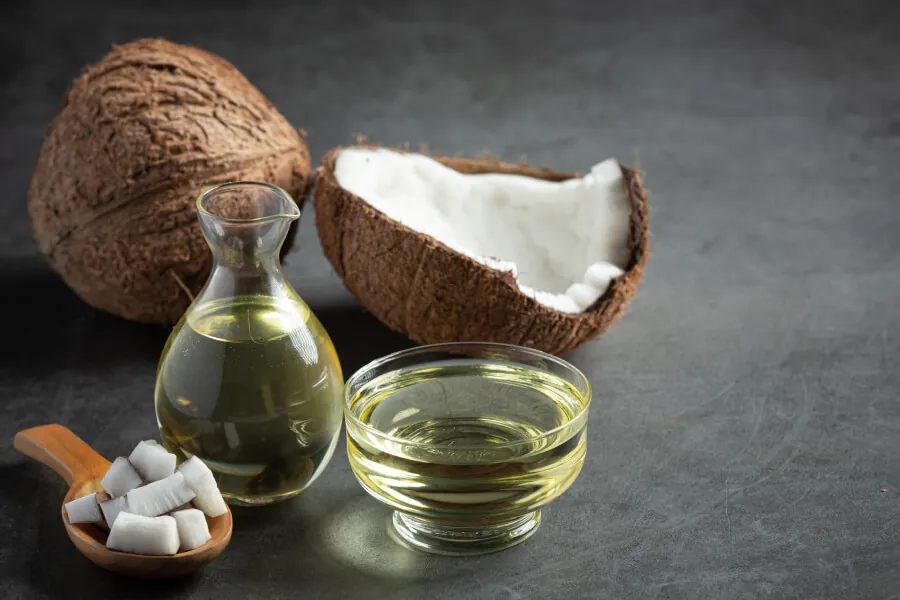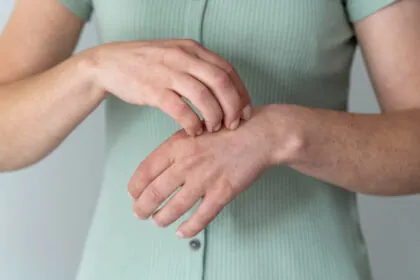Vaginal atrophy, also known as atrophic vaginitis, is a common condition affecting many women, particularly during and after menopause.
This condition occurs when estrogen levels decline, leading to thinning, drying, and inflammation of the vaginal walls. These changes can cause discomfort, itching, and pain during intercourse.
While hormone replacement therapy is a common treatment, many women seek natural remedies to alleviate their symptoms.
Let’s explore ten effective natural remedies for vaginal atrophy that you can try today.
Recognizing Symptoms of Vaginal Dryness
Being aware of the symptoms of vaginal dryness can help you address the issue promptly.
Common symptoms include:
- Itching or burning sensation
- Pain during intercourse
- Vaginal discharge or bleeding
- Frequent urinary tract infections
Causes of Vaginal Dryness
Vaginal dryness is a hallmark symptom of vaginal atrophy. It occurs due to the thinning of the vaginal walls and decreased production of natural lubrication.
Hormonal Changes
- Menopause: The most significant hormonal shift occurs during menopause, leading to a marked decrease in estrogen production.
- Perimenopause: The transitional period leading up to menopause can also cause fluctuating hormone levels and subsequent dryness.
- Postpartum and Breastfeeding: Hormone levels can dip after childbirth and during breastfeeding, contributing to vaginal dryness.
- Menstruation Cycle: Some women experience dryness at different phases of their menstrual cycle due to varying hormone levels.
Medications
Certain medications can interfere with the body’s natural hormone balance or directly affect vaginal lubrication, leading to dryness. These include:
- Antihistamines: Often used for allergies, they can dry out mucous membranes, including the vaginal tissues.
- Antidepressants: Some antidepressants can affect sexual function and lubrication.
- Hormonal Treatments: Treatments for breast cancer, such as tamoxifen or aromatase inhibitors, can significantly reduce estrogen levels.
- Birth Control Pills: Hormonal contraceptives can sometimes lead to decreased estrogen levels, causing dryness.
Medical Conditions
Several medical conditions can impact vaginal health and lead to dryness, such as:
- Autoimmune Disorders: Conditions like Sjögren’s syndrome can cause dryness in all mucous membranes, including the vagina.
- Diabetes: Poorly controlled diabetes can lead to reduced blood flow and nerve function in the vaginal area.
- Cancer Treatments: Radiation and chemotherapy can damage the vaginal tissues and reduce lubrication.
Psychological Factors
Mental health and emotional well-being play a crucial role in sexual health. Factors such as:
- Stress: High levels of stress can interfere with hormone production and reduce sexual desire, leading to dryness.
- Anxiety and Depression: These conditions can decrease libido and affect overall vaginal health.
Lifestyle Factors
Certain lifestyle habits and environmental factors can contribute to vaginal dryness, including:
- Smoking
- Alcohol Consumption
- Douching and Harsh Soaps
- Lack of Sexual Activity
- Age
- Dehydration
- Allergy and Cold Medications
10 Natural Solutions for Vaginal Atrophy
Coconut Oil
Coconut oil is a popular natural moisturizer that can provide relief from vaginal dryness. Its antifungal and antibacterial properties also help maintain vaginal health.
How to Use:
- Apply a small amount of organic, unrefined coconut oil to the vaginal area daily.
- You can also use it as a lubricant during intercourse.
Aloe Vera
Aloe vera gel is known for its soothing and hydrating properties. It can help alleviate dryness and discomfort in the vaginal area.
How to Use:
- Extract fresh aloe vera gel from the leaf.
- Apply the gel to the vaginal area and let it sit for a few minutes before rinsing.
Vitamin E
Vitamin E is a powerful antioxidant that helps improve skin health and hydration. It can be particularly beneficial for relieving vaginal dryness.
How to Use:
- Use vitamin E capsules as a topical treatment. Pierce the capsule and apply the oil directly to the vaginal area.
- Incorporate vitamin E-rich foods into your diet, such as nuts, seeds, and green leafy vegetables.
Olive Oil
Olive oil is another excellent natural moisturizer. It is gentle on the skin and helps to reduce dryness and irritation.
How to Use:
- Apply extra virgin olive oil to the vaginal area as needed for hydration and relief.
Black Cohosh
Black cohosh is an herb known for its ability to balance hormones, making it a popular remedy for menopausal symptoms, including vaginal atrophy.
How to Use:
- Take black cohosh supplements as directed by a healthcare provider.
- Consult with your doctor before starting any new supplement regimen.
Sea Buckthorn Oil
Sea buckthorn oil is rich in essential fatty acids and vitamins, making it effective in treating vaginal dryness and improving overall vaginal health.
How to Use:
- Take sea buckthorn oil supplements or apply the oil directly to the vaginal area.
Flaxseed
Flaxseed is high in phytoestrogens, which can help balance hormones and alleviate symptoms of vaginal atrophy.
How to Use:
- Add ground flaxseed to your diet by sprinkling it on cereals, smoothies, or yogurt.
- Consider taking flaxseed oil supplements.
Hydration
Staying hydrated is crucial for maintaining the body’s natural lubrication, including in the vaginal area.
How to Use:
- Drink at least 8 glasses of water a day to stay hydrated and support overall health.
Kegel Exercises
Kegel exercises help strengthen the pelvic floor muscles, which can improve vaginal health and function.
How to Use:
- Practice Kegel exercises daily by contracting and relaxing the pelvic floor muscles for a few seconds at a time.
Probiotics
Probiotics help maintain a healthy balance of bacteria in the vagina, which can prevent infections and improve vaginal health.
How to Use:
- Consume probiotic-rich foods like yogurt, kefir, and fermented vegetables.
- Take probiotic supplements as directed.
Effective Treatments for Vaginal Dryness
While natural remedies can be effective, they may not work for everyone. It’s important to consider all available treatments and find what works best for your body.
Hormone replacement therapy, vaginal estrogen creams, and other medical treatments are available and may be necessary for more severe cases.
Improving Your Lifestyle for Vaginal Health
Lifestyle changes can play a significant role in managing vaginal atrophy. Consider incorporating the following tips into your daily routine to improve vaginal health:
- Maintain a Healthy Diet: A balanced diet rich in vitamins, minerals, and phytoestrogens can support hormonal balance and overall health.
- Exercise Regularly: Regular physical activity improves blood circulation and overall well-being.
- Quit Smoking: Smoking can exacerbate vaginal dryness and other menopausal symptoms.
- Practice Safe Sex: Use lubrication during intercourse to reduce discomfort and avoid infections.
Try the pH Balancing Cleanser™ for Vaginal Health
Using a pH balancing cleanser specifically designed for vaginal health can help maintain the natural pH balance and prevent dryness and irritation. Look for products with natural ingredients that support hydration and comfort.
5 Essential Yoga Poses for Vaginal Health
Yoga can improve blood flow and strengthen the pelvic floor muscles, which are beneficial for vaginal health. Try incorporating these poses into your routine:
- Bridge Pose (Setu Bandhasana): Strengthens the pelvic floor muscles.
- Child’s Pose (Balasana): Relieves tension and improves relaxation.
- Cobra Pose (Bhujangasana): Enhances blood flow to the pelvic region.
- Happy Baby Pose (Ananda Balasana): Stretches and opens the pelvic area.
- Goddess Pose (Utkata Konasana): Strengthens and tones the pelvic floor muscles.
Enhancing Vaginal Health with the pH Bundle
Consider using a combination of products designed to support vaginal health, such as the pH Balancing Cleanser™ along with other hydrating and soothing products. A comprehensive approach can provide more effective and lasting relief.
Preventive Measures for Vaginal Atrophy
Prevention is always better than cure. Here are some preventive measures to maintain vaginal health and reduce the risk of vaginal atrophy:
- Regular Check-ups: Visit your gynecologist regularly for check-ups and screenings.
- Healthy Diet: Eat a diet rich in fruits, vegetables, and whole grains.
- Hydration: Stay hydrated by drinking plenty of water.
- Safe Sex Practices: Use lubrication to prevent discomfort and avoid infections.
By integrating these practices into your daily routine, you can help maintain vaginal health and reduce the risk of developing vaginal atrophy.
Conclusion
In conclusion, natural remedies can offer effective relief for vaginal atrophy. From coconut oil and aloe vera to black cohosh and probiotics, there are various options to explore.
Always consult with your healthcare provider before trying new treatments to ensure they are safe and suitable for your individual needs.
With the right approach, you can manage symptoms and improve your quality of life.
FAQs
What Is Vaginal Dryness?
Vaginal dryness is a condition where the vaginal tissues lack adequate lubrication, leading to discomfort, itching, and pain during intercourse. It is commonly caused by hormonal changes, particularly a decrease in estrogen levels.
What are the symptoms of perimenopause?
The symptoms of perimenopause include irregular menstrual cycles, hot flashes, night sweats, mood swings, sleep disturbances, vaginal dryness, and decreased libido.
How can you treat vaginal dryness?
Vaginal dryness can be treated with various methods, including over-the-counter lubricants and moisturizers, hormone replacement therapy (HRT), lifestyle changes like staying hydrated, and natural remedies such as coconut oil and aloe vera.
What is a vaginal thrush?
Vaginal thrush, also known as a yeast infection, is a fungal infection caused by the overgrowth of Candida yeast in the vagina. Symptoms include itching, burning, discharge, and redness.
How is vaginal dryness treated?
Vaginal dryness is treated through several approaches, such as using vaginal moisturizers and lubricants, applying estrogen creams or tablets, making dietary changes to increase hydration, and incorporating natural remedies like vitamin E oil.







